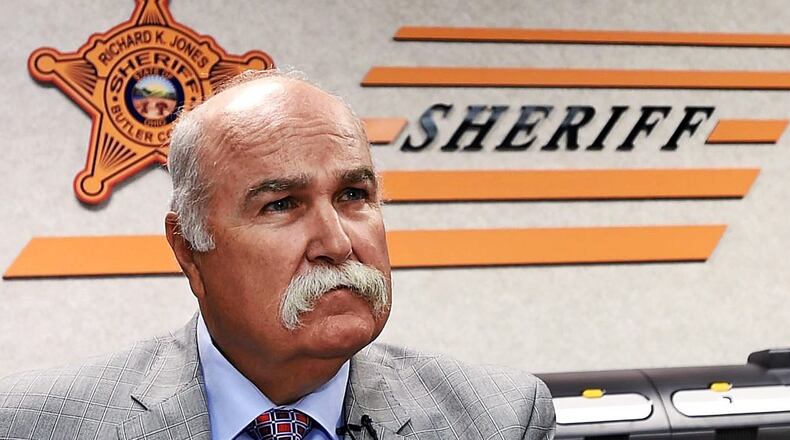Jones’ deputies have never carried the overdose reversal drug.
"When the courts order me to do it, we’ll use it," he said.
Last month, Middletown City Council member Dan Picard asked if EMS could stop responding to overdose calls.
“I want to send a message to the world that you don’t want to come to Middletown to overdose because someone might not come with Narcan and save your life,” Picard said. “We need to put a fear about overdosing in Middletown.”
» RELATED: 5 key events that spurred Ohio's opioid epidemic
» RELATED: Another sign of the opioid epidemic: The unusual overdose locations
Middletown is on pace to spend $100,000 for Narcan this year but budgeted only $10,000, according to City Manager Doug Adkins.
Picard proposed that no person be revived by EMS more than three times.
Nearly every community in Butler County is touched by the opioid crisis and more than half of Butler County’s 25 municipalities had at least one heroin/fentanyl overdose-related death in 2016. Of the 192 overdose deaths in the county, 80 percent were attributed to heroin, fentanyl or both. The county reported 52 deaths in Middletown, 47 in Hamilton and 12 in Fairfield.
Jones said on the show that first responders are often in danger when they arrive at an overdose call. Officers and medics sometimes encounter violent people who don’t want to see police. Responders also run the risk of coming into contact with needles and life-threatening drugs.
“It’s very dangerous,” he said. “We’re not winning this battle and Narcan is not the answer.
“They are going to continue to do this, but it’s draining the public dry.”
About the Author


